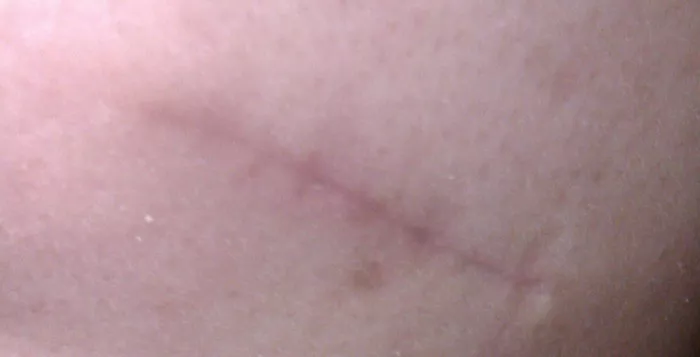Surgery scars can often be a reminder of past medical procedures, leaving individuals self-conscious about their appearance and seeking effective solutions for scar management. Aloe vera gel has gained popularity as a natural remedy for various skin conditions, including scars. Its soothing properties and potential healing effects make it an intriguing option for scar treatment post-surgery. This article explores the science behind aloe vera gel and its application in managing surgery scars.
Understanding Surgery Scars
Types of Surgery Scars
Surgery scars can vary in appearance and severity depending on factors such as the type of surgery, individual skin characteristics, and post-operative care. Common types of surgery scars include:
Hypertrophic Scars: These scars are raised and may appear red or pink. They develop when the body produces excess collagen during the healing process, resulting in a raised scar.
Keloid Scars: Keloids are characterized by overgrowth of scar tissue beyond the boundaries of the original wound. They can be itchy, tender, and cosmetically bothersome.
Atrophic Scars: Atrophic scars are sunken scars that result from the loss of underlying tissue. They can occur after surgeries where tissue is removed or due to conditions like acne.
Challenges of Surgery Scars
Surgery scars not only affect the physical appearance but can also impact psychological well-being. Individuals may experience self-esteem issues, anxiety, and depression due to the presence of prominent scars. Additionally, scars may restrict movement, especially if they form over joints or areas of high mobility. Addressing these challenges requires effective scar management strategies.
The Role of Aloe Vera Gel in Scar Management
Composition of Aloe Vera Gel
Aloe vera gel is derived from the succulent leaves of the Aloe vera plant, known for its therapeutic properties. The gel contains a plethora of bioactive compounds, including polysaccharides, vitamins, minerals, enzymes, and amino acids. These components contribute to the various beneficial effects of aloe vera gel on the skin.
Anti-inflammatory Properties
Aloe vera gel exhibits potent anti-inflammatory properties, attributed primarily to compounds such as acemannan and salicylic acid. These compounds help reduce inflammation in the skin, which is crucial for preventing excessive scar formation and promoting a more favorable healing environment.
Moisturizing Effects
One of the key benefits of aloe vera gel is its moisturizing effect on the skin. It contains a high water content, which helps hydrate the skin and maintain its elasticity. Proper hydration is essential for scar management as it can prevent excessive dryness, itching, and irritation, which are common concerns during the healing process.
Wound Healing Properties
Aloe vera gel has been shown to accelerate the wound healing process through various mechanisms. It stimulates the production of collagen, the primary structural protein in the skin, which is crucial for wound closure and scar formation. Additionally, aloe vera gel possesses antimicrobial properties, helping prevent infections that could delay healing and exacerbate scarring.
Antioxidant Activity
Free radicals generated during the healing process can damage skin cells and impede proper wound healing, leading to increased scar formation. Aloe vera gel contains antioxidants such as vitamins C and E, as well as polyphenols, which neutralize free radicals and protect the skin from oxidative stress. This antioxidant activity contributes to a healthier wound healing process and may result in less noticeable scars.
Clinical Evidence Supporting Aloe Vera Gel for Surgery Scars
Clinical Studies
Several clinical studies have investigated the efficacy of aloe vera gel in improving the appearance of surgery scars. A randomized controlled trial published in the “Journal of Dermatological Treatment” compared the effects of aloe vera gel versus silicone gel, a commonly used scar treatment, on hypertrophic scars resulting from burns and surgeries. The study found that both treatments were effective in reducing scar height and erythema, with no significant difference between the two groups.
Patient Satisfaction
In addition to objective measures such as scar height and color, patient satisfaction is an essential aspect of scar management. A study published in the “Journal of Clinical and Aesthetic Dermatology” evaluated patient satisfaction with aloe vera gel for the treatment of various types of scars, including surgery scars. The majority of patients reported improvements in scar texture, color, and overall appearance, indicating a high level of satisfaction with aloe vera gel therapy.
Safety Profile
Aloe vera gel is generally well-tolerated when applied topically to the skin. Adverse reactions are rare but may include allergic reactions or contact dermatitis in sensitive individuals. It is essential to perform a patch test before using aloe vera gel on a larger area of the skin, especially for individuals with a history of skin allergies or sensitivities.
Practical Considerations for Using Aloe Vera Gel on Surgery Scars
Application Technique
When using aloe vera gel for surgery scars, proper application technique is crucial for optimal results. Cleanse the scar area gently with mild soap and water, then pat dry with a clean towel. Apply a thin layer of aloe vera gel to the scar and massage gently until absorbed. Repeat this process two to three times daily for best results.
Consistency
Consistency is key when using aloe vera gel for scar management. It may take several weeks or even months to see noticeable improvements in the appearance of surgery scars. It is essential to continue using the gel regularly as directed to maximize its benefits and promote optimal healing.
Sun Protection
Exposure to ultraviolet (UV) radiation can exacerbate scar discoloration and hinder the healing process. It is crucial to protect surgery scars from sun exposure by applying a broad-spectrum sunscreen with SPF 30 or higher. Additionally, wearing protective clothing such as hats and long sleeves can further shield the scar from UV damage.
Conclusion
Surgery scars can have a significant impact on physical appearance and emotional well-being. Effective scar management strategies are essential for minimizing the appearance of scars and improving overall quality of life for individuals undergoing surgical procedures. Aloe vera gel offers a natural, safe, and potentially effective option for managing surgery scars, thanks to its anti-inflammatory, moisturizing, and wound healing properties. While further research is needed to fully elucidate its mechanisms of action and optimal use, clinical evidence and patient satisfaction support the inclusion of aloe vera gel in scar management protocols. By incorporating aloe vera gel into post-operative care routines, individuals can promote smoother, more cosmetically pleasing healing of surgery scars.
[inline_related_posts title=”You Might Be Interested In” title_align=”left” style=”list” number=”6″ align=”none” ids=”6458,6465,6462″ by=”categories” orderby=”rand” order=”DESC” hide_thumb=”no” thumb_right=”no” views=”no” date=”yes” grid_columns=”2″ post_type=”” tax=””]
































